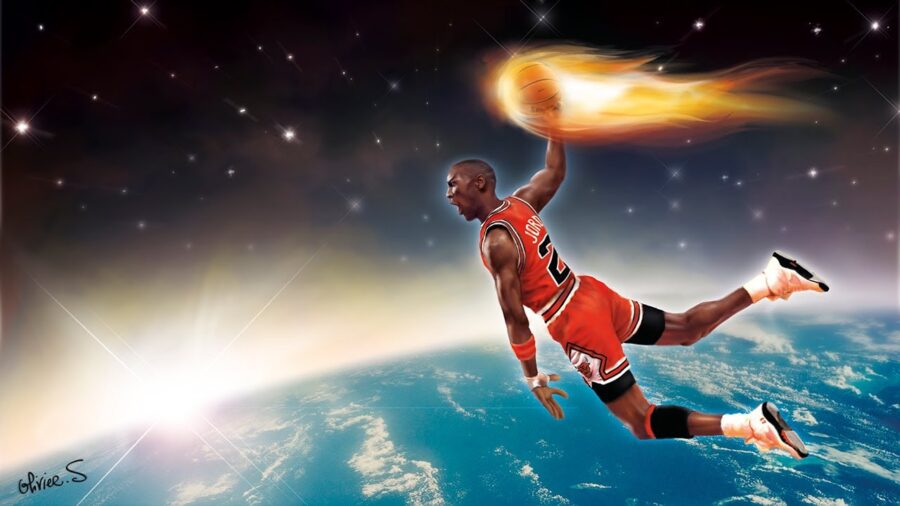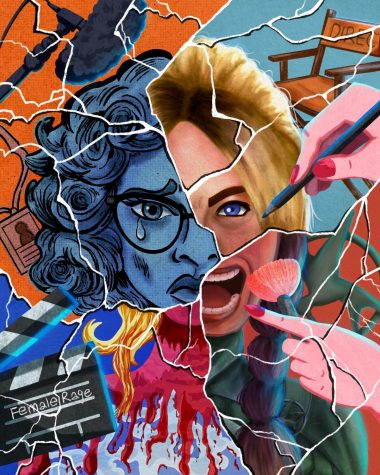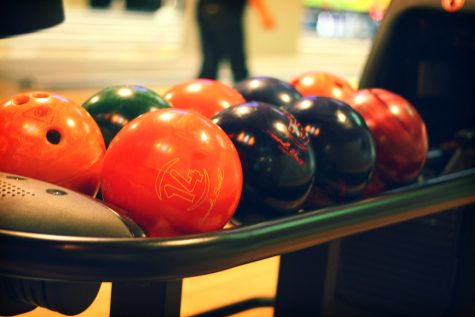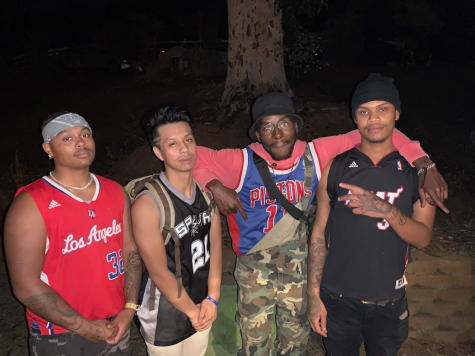From Mortals To Gods
The mythology of sport heroes.
In Ancient Greece, triumphant Olympic athletes were rewarded with social status beyond their birth origins and celebrated by cities for their feats. They were lauded as legends — the most physically imposing and athletically dominant citizens. In the legend of Hercules, for example. He was a physically impressive demigod who was known for his great strength and for overcoming overwhelming odds.
Sports evolved out of nomadic hunter and gathering societies, they have entered the arena to establish who the strongest and fastest were in a given ecosystem. Unlike the social status of royalty or intellectuals, the dominant athlete elicits an instinctive response in people — alpha male.
As centuries passed many aspects of civilization have shifted, but the mythology behind the sports hero has not. Today we still marvel at those who excel at their respective athletic discipline. They are honored with popularity, wealth, and social status if they reach elite levels of their discipline. Once great, these athletes become role models for younger generations to aspire to. An athlete is placed upon a pedestal for all to admire, whether they wish to be in that position or not.
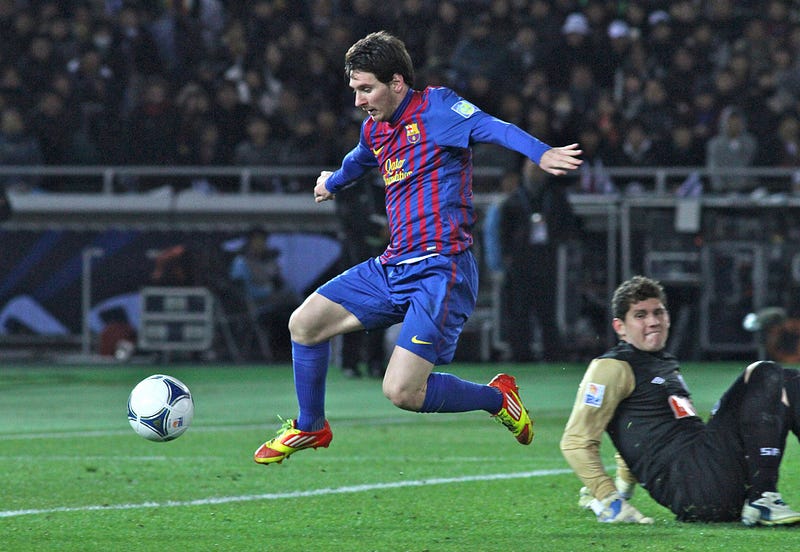
Heroes are an imperative to a narrative; they allow humans to paint themselves as the protagonist in the story of life — one who overcomes obstacles and conquers.
Contemporary society can develop a love-hate relationship with its heroes. When they fulfill these social needs — civic or national pride — we love them. They become idols and a model of what can be accomplished through hard work and sacrifice. If the hero alters this perception or need , the public will turn on them. The hero then becomes a villain and we enjoy watching them fall.
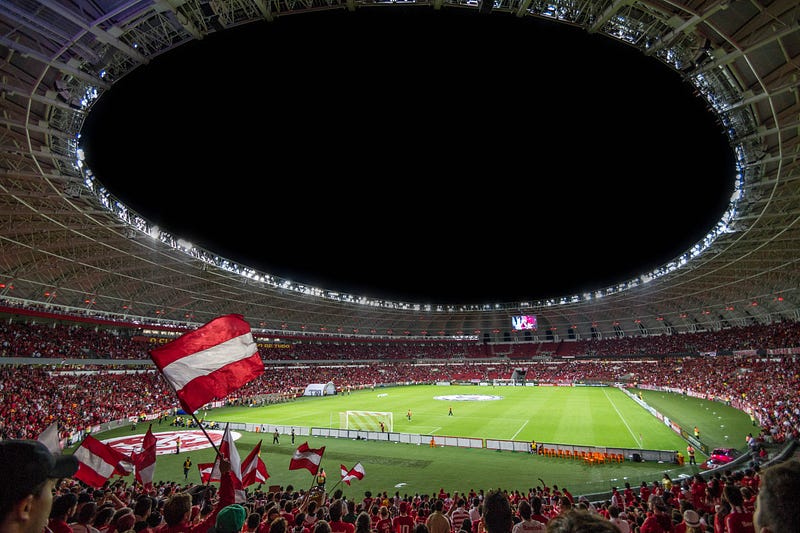
Sports aren’t unique in offering a platform for a hero to inspire and stroke the human ego, but it is one of the rare aspects in society that can transcend culture and language. You don’t need to look, believe or vote alike to enjoy athletic excellence together.
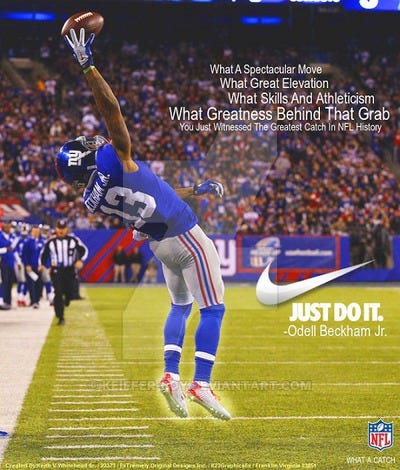
Kids in America, niños en España and 孩子在中国 can all view in amazement watching Odell Beckham Jr. catch a football with one hand, Lionel Messi score a goal or LeBron James dunk a basketball. Sports unites people like few other institutions in the world, entertaining and providing applicable metaphors for real life issues.
For this reason, narratives are constructed around these athletes in order for society to promote social ideals and the human condition in a public venue.
The names of these great athletes become synonymous with success and greatness — they soar to the heavens like gods among mere mortals.
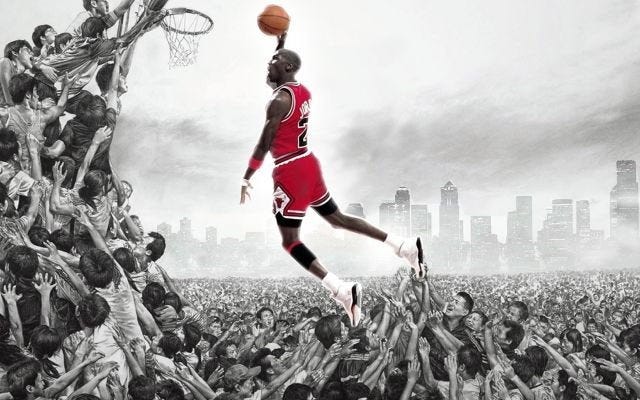
“I didn’t think anyone was capable of doing what Michael has done to us,” marveled Celtics ace Larry Bird. “He is the most exciting, awesome player in the game today. I think it’s just God disguised as Michael Jordan.” —April 20, 1986
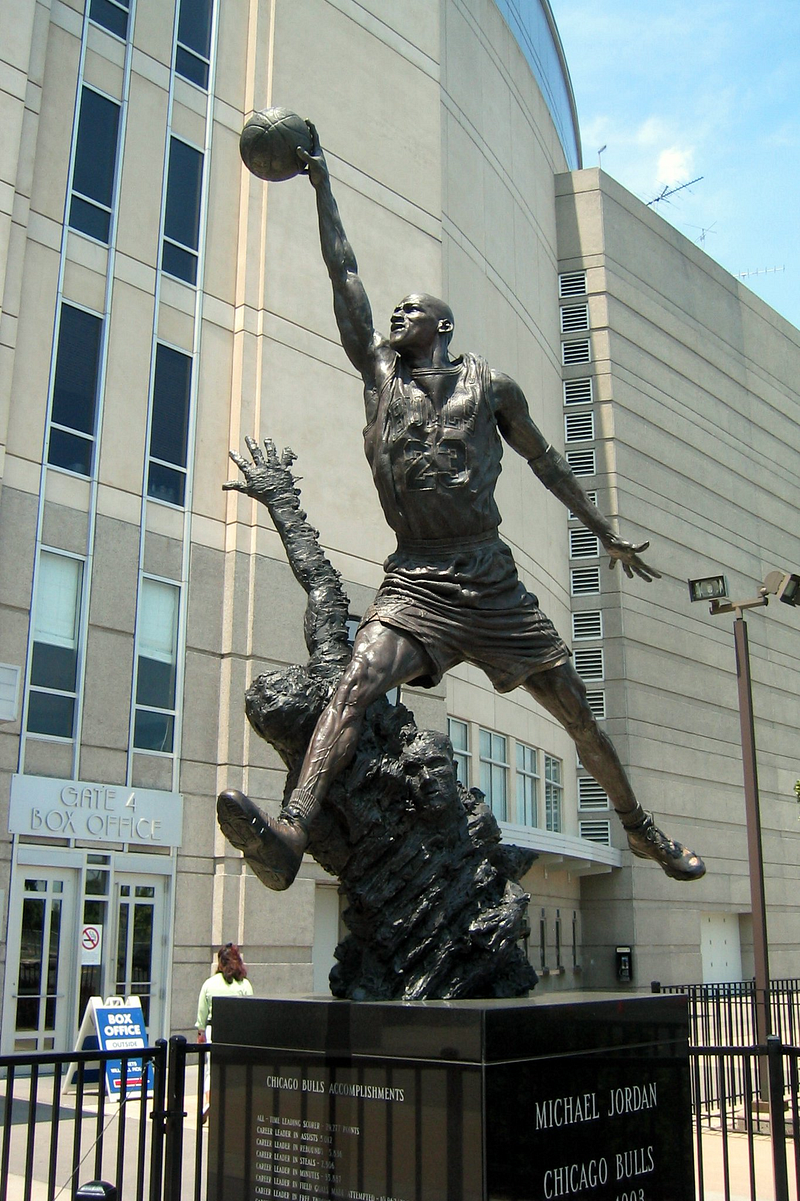
Perhaps the most famous example of this phenomenon is basketball player Michael Jordan.
He was majestic as he flew through the air so effortlessly. Demonstrating artistic athleticism, where fans were left in awe as he achieved what was thought to be impossible — defying the laws of gravity.
During his career he would win six NBA titles, five Most Valuable Player awards and two dunk contest trophies. He would also go on to define an era and become a marketing machine.
Since Jordan’s time, things have remained the same. His character maintained a clean image, never speaking out about any topic that was controversial or divisive. The reward was that he received maximum exposure and everyone felt comfortable being a fan of Air Jordan.
Whether young or old, black or white, rich or poor, democrat or republican, religious or secular — -Jordan’s character was sculpted to be all inclusive and to maximize earning potential off the court.
Air Jordan was a hero created by society, the man who could defy gravity and who always found a way to prevail.
Jordan became a global superstar after winning gold in the 1996 Olympic games in Barcelona with team USA. He starred in a feature film, Space Jam, in which he had to play against aliens from other planets.
Air Jordan represented the best that the human species could offer, and pushed the boundaries of the perceived physical limitations of our anatomy. The marketing in a 20th century economy only expanded his glory, kids everywhere wanted to be just like Jordan.
His endorsements and shoe deals exploded in the 90s, he was in every commercial from McDonald’s to Gatorade — his character was now firmly in the American lexicon. His shoes became known simply as ‘Jordans’ and you had to have them because all your friends did. The logo on his shoes was a silhouette of his signature dunking style. The legend was born, the shoes became a billion dollar industry and his place in our culture was forever cemented.
“Be Like Mike” —slogan for Jordan’s Gatorade commercial
no worries, mate. #belikemike 😉 https://t.co/PM7WG73W91
— tim butcher (@tim_butcher) May 13, 2016
The tradition Jordan started continues today. Its evolution has come to include social media. with instant access to athletes, where ever they go, on a daily basis.
Fans can see what they are doing through pictures and videos on their phones whenever they please. It has become more difficult to construct the narrative that propels athletes to stardom now because we are more aware of their mistakes and shortcomings. However, the practice of worshiping athletic feats is hardly over — the characters are just new.
Kobe Bryant finally moves to trademark 'Black Mamba' https://t.co/Xb6cdv0oer pic.twitter.com/fly6DdLCAv
— Dime (@DimeUPROXX) May 16, 2016
“Black mambas(snake): They are fast, nervous, lethally venomous, and when threatened, highly aggressive” — National Geographic
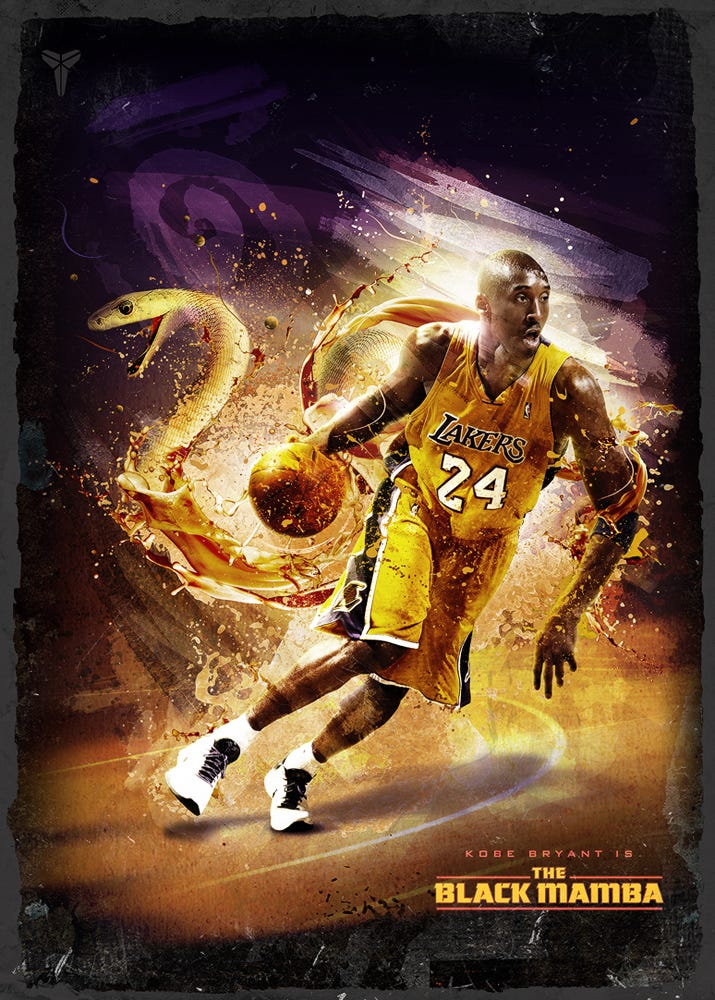
Unlike Jordan, Kobe Bryant does not have a clean image. His narrative changed the day he was accused of sexual assault in 2003 — though the case was later dropped and settled out of court.
For this reason, his story arc would not be that of a traditional hero. In order for his journey to continue, he and the public had to embrace a different version — the Black Mamba born.
That was the script laid out before him, both by his own doing and because it was the character fans needed. Even though he set out to be the next Jordan, he no longer fit that archetype and thus adapted.
The Black Mamba was the anti-hero who fell from grace and had to journey through the hell of public shame. It was through brilliant performance and force of will that he regained his stature — winning five championships, an MVP and setting NBA records.
The Kobe character turned into the bad boy of the sports world, the player you loved to root against — ruthlessly competitive and unapologetically aggressive.
He won gold in the 2008 Olympics in Beijing, as part of the ‘redeem team’ after a disappointing Bronze in 2004(where Bryant was absent because of his image at the time). The Black Mamba’s story is about redemption, overcoming past failures with mental toughness and hard work.
Now when someone balls up a piece of paper and throws it in a trash-can, they yell out “Kobe!” He has become the most popular basketball player overseas, selling the most amount of merchandise in China, which the biggest NBA consumer outside of the US. Bryant has etched a place in pop culture and is synonymous with winning and toughness.
“I’m both. Just like everybody in this room,” Bryant said. “It’s a very simple concept when you think about it. We’re all both. We all have a little hero and villain inside of us, it’s just dependent on perspective.”
‘Mamba Day’, Nike Ad celebrating the retirement of Kobe Bryant
Like many young people, Jose Gonzalez grew up idolizing Bryant. Not just as an incredible athlete, but as a model for success. You don’t have to be a sports fan to admire athletic greatness, just appreciating the ability to achieve what is seemingly impossible. Overcoming great odds, playing through injury, defeating people twice your size or making shots that seem physically impossible. All of it captivates the human imagination.
“I love basketball, I watch it and I used to play it. At a young age I looked up to Kobe for inspiration, even though I wasn’t good I wanted to be like him. He was so confident and was so amazing no matter the circumstances,” said Jose Manuel Gonzalez
Once we used to huddle around a fire to listen to tales or read about our heroes by candlelight, now we just stare at a screen and are amazed by them.
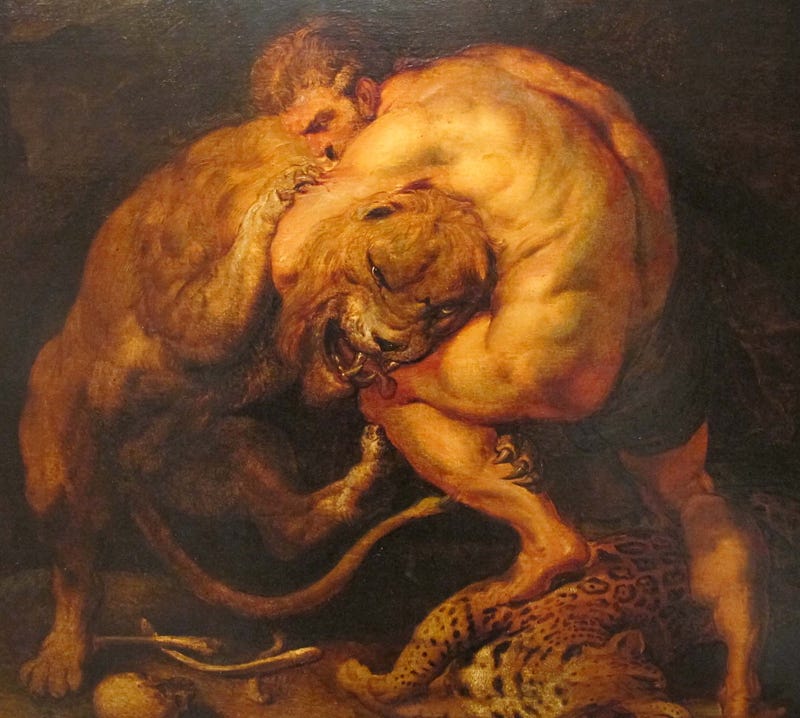
“The term hero comes from the ancient Greeks. For them, a hero was a mortal who had done something so far beyond the normal scope of human experience that he left an immortal memory behind him when he died, and thus received worship like that due the gods,” said Scott LaBarge of Santa Clara University
Who society chooses to make a hero matters, but equally as important is understanding why they have a special place in our civilization. From Hercules to Air Jordan, we want characters that triumph over adversity or evil. They become a symbol of hope for the masses. What we want to see from ourselves.
Aspiration is what defines our species — striving to discover purpose and possibility. Which is why the heroes we create reflect our most ambitious dreams, because they are a manifestation of the human spirit.

